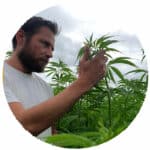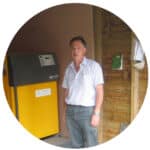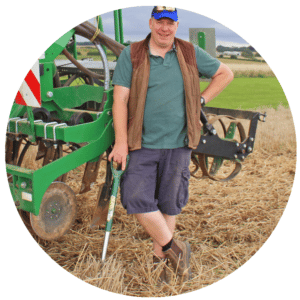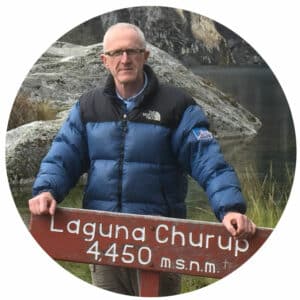Tools for the Biomass Trade – Envirocrops and Farm Carbon Toolkit
With modern day farming it’s really important to have your finger on the pulse and get all the latest information so you can make the right decision for your land. In this webinar our expert panel will demonstrate how to get the best out of the Envirocrops and Farm Carbon Toolkit web apps to help you understand the highest yielding crop options, the income potential, the markets that are in your area, the suppliers you’ll need, the carbon savings and more.
Our Speakers will be Róisín Alvy (Calvium) and Lizzy Parker (Farm Carbon Toolkit)
Speakers:
Róisín Alvy :Calvium
Róisín is a commercially astute, data-driven digital product specialist, with experience driving and delivering change for client, end user, and internal success. Her areas of experience include: Agri-Tech, UK Government, Aerospace, Museum & Heritage, Asset management.
Lizzy Parker: Farm Carbon Toolkit
Lizzy oversees the updates to our farm carbon calculator. Lizzy previously worked analysing large data sets from biochemical analysis of crop plants and led on projects supporting research software development at the University of Sheffield. Having also worked in the charity sector helping constituents communicate climate change issues with their local and national decision-makers, Lizzy is interested in overcoming barriers to the adoption of more sustainable practices. Her training as a soil biologist has led to a passion for the need to protect and safeguard the potential of our agricultural soils.
Lizzy grew up on the border of Somerset and Devon in a rural farming community. She is now based in Sheffield where she recently completed her PhD researching the effects of mycorrhizal fungi on barley during drought. She has a masters degree in Plant and Microbial Biology (MRes) and a degree in Biology with a Modern Language (BSc Hons). In her spare time, Lizzy volunteers with Foodworks, a Sheffield-based charity who repurpose surplus food and also grow their own within the city using regenerative principles.
Biomass Crops – some interesting alternatives: Poplar and Hemp
This webinar will provide the latest developments in two exciting land use options: Poplar and Hemp. The presentations will provide a quick-fire introduction with information on agronomy, variety choice, yields, cropping regimes, markets and the potential for carbon removal. There will be plenty of chances to pose your burning (and non-burning) questions to our expert panellists.
Our Speakers will be Pietro Alasia from AL.Wood and Jamie Bartley from Unyte Group.
Speakers:
Jamie Bartley: Unyte Group

Jamie Bartley
Jamie Bartley is the CEO of the Unyte Group and also Co-Chairs the Cannabis Industry Council, working closely with the UK Government via the APPG for Industrial Hemp and CBD products. Having launched the group in 2019, with a diverse set of business units covering Hemp, Energy, Waste and Medicinal, the focus has always been the improvement of human and planetary health. Jamie’s passion is about impact at scale, as this is the only way we will achieve the net zero targets, therefore focussing on the decarbonisation of construction products and bio char as scalable solutions that Hemp can provide.
Pietro Alasia: AL.Wood

Pietro Alasia
Pietro Alasia is a fourth-generation entrepreneur from Italy. After completing his studies in agribusiness at the Minoprio Foundation, he dedicated himself to the family business, AL.WOOD. Originally starting as a small local nursery, the company has since specialised in poplar cultivation, focusing on both traditional poplar plantations for plywood production and biomass plantations. AL.WOOD has now expanded its market, commercialising its varieties across Europe and beyond. Currently, the company is also engaged in research on new hybrids to enhance the genetic improvement of poplar species.
Plan Bs – How to turn it around when something goes wrong
Our popular webinar series is back for Season 3 and hits the ground running!
When you are managing a perennial biomass crop with a 20 year+ lifetime, it is unlikely that it will all be plain sailing. There’s a lot that can go wrong: Weeds, rabbits, deer, pests, diseases, gappy crops, floods, droughts, changes in legislation, schemes and markets are all possible things that growers will have to face at one point or another. This webinar will provide some possible options to meet these challenges and get the most out of your crop. Any grower who’s got a problem should tune in and ask the expert panel of “agony aunts” for advice.
The webinar will focus mainly on Short Rotation Coppice willow and Miscanthus crops but many of the issues addressed will be familiar to any perennial biomass crop. Our very knowledgeable panel (Will Macalpine of Rothamsted Research and Chris Ashman of Aberystwyth University) have dealt with most of these issues over the years so have first hand experience of how to find a solution whenever reality throws a curveball.
Our Speakers will be William Macalpine, plant breeder at Rothamsted Research and Chris Ashman, Post-doctoral research associate at Aberystwyth University.
Speakers:
William Macalpine: Rothamsted Research
William is a willow breeder at Rothamsted Research. He has over 21 years’ experience in willow breeding, perennial energy crop agronomy and in making phenotypic and physiological measurements. He has performed over 700 crosses, carried out research to overcome crossing barriers, produced mapping populations and elite SRC willow varieties. He has planned, planted and managed around 100 perennial energy crop field trials. William has an in-depth knowledge of the UK National Willow Collection, a unique Salix germplasm resource, which is located at Rothamsted Research.
Chris Ashman: Aberystwyth University
Post-doctoral research associate at IBERS and Demonstrator Hub manager at the Biomass Connect Aberystwyth site.
Managing fuel storage and drying to best practice quality standards
Biomass crops produce high yields in a short period of time. However, depending on the crop type and the end use there will be a myriad of ways to store and dry your material. You have to consider storage space, logistics and economics and the end use specification. This webinar will provide information on the different options and how you can make sure you are producing the best quality biomass for your chosen market. It will also flag up important aspects of health and safety and legal obligations. The webinar will include two farmers who are using biomass crops in their boilers and will pass on their experience.
Our Speakers will be Will Richardson, Director of RDI Associates, Jonathan Andrew, a farmer from North Devon and David Christopher of Langaller Farm in Somerset.
Speakers:
Will Richardson MICFor, MSc, BSc (Hons): RDIA Director
A Member of the Institute of Chartered Foresters and Masters degree in Forest Management graduate from the University of Aberdeen, Will has worked in the forest industry for over twenty-seven years in both the public and private sectors. He is currently involved in a number of work areas including over 10 years as an auditor for Woodsure and the BSL, provision of management services to private land owners on forest management, and woodland creation and research and consultancy on forest and biomass-industry related projects.
Co-founder and Director of RDI Associates Ltd, Will has a strong practical background in forestry and has held a variety of operational posts since 1990; forest nursery, private estate forester, forestry contractor, director of a woodfuel producer group, and Lantra Awards certified training course instructor. Will has in-depth knowledge of forest certification schemes having set up the UK’s first Grown in Britain chain of custody certification group and manages over 1500ha of woodlands under the UK Woodland Assurance Standard.
Jonathan Andrew
 Mr Andrew is the owner of Umberleigh Barton Farm, a mixed farm situated in North Devon. The farm has six residential properties, two of which are occupied by Mr and Mrs Andrew and Mr Andrew’s parents, whilst the other four are occupied by tenants. These are heated with a 130 kW biomass boiler which is accredited under the Renewable Heat Incentive (RHI). Mr Andrew has been supplementing bought-in woodchip with home-grown SRC willlow, grown on 4 hectares of his farm since 2019.
Mr Andrew is the owner of Umberleigh Barton Farm, a mixed farm situated in North Devon. The farm has six residential properties, two of which are occupied by Mr and Mrs Andrew and Mr Andrew’s parents, whilst the other four are occupied by tenants. These are heated with a 130 kW biomass boiler which is accredited under the Renewable Heat Incentive (RHI). Mr Andrew has been supplementing bought-in woodchip with home-grown SRC willlow, grown on 4 hectares of his farm since 2019.
David Christopher
 Mr Christopher is the owner of Langaller Farm, a family run farm in Dulverton, Somerset covering around 40 hectares. The majority of the farm is covered by Miscanthus grass that was planted in 2006-2007. Since 2012, Mr Christopher has been using Miscanthus chip as the primary fuel source in his 130 kW RHI accredited biomass boiler. This heats his farm house and barns containing 40,000 indoor reared chickens.
Mr Christopher is the owner of Langaller Farm, a family run farm in Dulverton, Somerset covering around 40 hectares. The majority of the farm is covered by Miscanthus grass that was planted in 2006-2007. Since 2012, Mr Christopher has been using Miscanthus chip as the primary fuel source in his 130 kW RHI accredited biomass boiler. This heats his farm house and barns containing 40,000 indoor reared chickens.
Maximising biodiversity in your Biomass crop plantation
Biomass crops and their surrounds are brimming with life – birds, bees, butterflies and predatory arthropods all live in, or on the edge and in the surrounds of these plantations.
This webinar will provide information on emerging research into understanding how to marry up yield productivity from these crops whilst incorporating simple measures (such as buffer strips and flower-rich grass margins) that increase the edge effect, promote pollinators and maximise biodiversity net gain. There will be some information on recent Sustainable Farming Initiative (SFI) payment measures and what this means to growers of different biomass crops.
Our Speakers will be Dr. Rebecca Rowe, a terrestrial ecologist from the UK Centre for Ecology and Hydrology (UKCEH) and Ed Drewitt, a freelance naturalist.
Rebecca will cover topics such as the trends in biodiversity in UK farmland, how biomass crops might help and which crops are the best from a biodiversity point of view. She’ll also cover current research projects and the grants available to biomass crop growers for biodiversity enhancement.
Ed will take a look at biomass plantations from the perspective of a naturalist, investigating how birds and other animals use them, how such plantations could be designed to increase biodiversity and how biomass plantations could contribute to protecting endangered species.
Speakers:
 Rebecca Rowe (UK CEH)
Rebecca Rowe (UK CEH)
Rebecca is interested in challenges associated with sustainable land-use and especially how we will meet future demands for food, fibre and fuel whilst protecting the natural environment. Her research to date has focused on the impacts of land use change to bioenergy cropping on biodiversity, soil carbon and ecosystem processes.
Ed Drewitt (Freelance Naturalist)
 Ed Drewitt is a freelance naturalist, showing people wildlife (especially in the Forest of Dean where he lives), training others to identify birds and their songs and completing wildlife surveys, often on farmland. He is also a learning advisor, developing learning resources and toolkits for wildlife organisations. Ed is a frequent contributor to wildlife films, both behind the scenes and on camera. He has featured on BBC’s Springwatch, The One Show, BBC Breakfast and several shows for CBBC. He has also been studying urban-dwelling peregrines for 25 years and is currently doing a part-time PhD at the University of Bristol looking at what makes them tick.
Ed Drewitt is a freelance naturalist, showing people wildlife (especially in the Forest of Dean where he lives), training others to identify birds and their songs and completing wildlife surveys, often on farmland. He is also a learning advisor, developing learning resources and toolkits for wildlife organisations. Ed is a frequent contributor to wildlife films, both behind the scenes and on camera. He has featured on BBC’s Springwatch, The One Show, BBC Breakfast and several shows for CBBC. He has also been studying urban-dwelling peregrines for 25 years and is currently doing a part-time PhD at the University of Bristol looking at what makes them tick.
Biomass crops – some interesting alternatives #2
Black Locust and Energy Canes
Some biomass crops are more well known than others, but it’s not all about Willow and Miscanthus as they can’t possibly be the best crop for all situations. There are many others to choose from and this webinar will delve into just two of the alternatives, Black Locust and Energy Canes.
Márton Németh (Silvanus Forestry) will talk about Black Locust, a medium-sized tree native to the southern United States that is one of the most commonly planted commercial hardwood trees. It is fast growing producing large amounts of biomass which can be easily coppiced. Biomass Connect are growing varieties of Black Locust at all of our Hub Site trials. The tree produces high-density wood which can be harvested and produced into pellets with high energy content. Black Locust also has many other uses and benefits that will be discussed.
Paul Carver (New Energy Farms) will give a presentation about Energy Canes.
With Kevin Lindegaard (Crops4Energy) steering the discussions, the webinar promises to be an interesting and lively foray into these alternative biomass crops.
Speakers:
Márton Németh – Silvanus Forestry

Márton Németh is the Managing Director of Silvanus Group, a family company originally established in 1980, which has diversified into the research and development of fast-growing varieties more than 15 years ago. Márton graduated from Bocconi University in 2016 in International Economics, Management and Finance and is currently finishing his master’s degree in Environmental Engineering at the University of Sopron. He has worked in the finance sector as well as the tech sector and now has more than 5 years of full-time experience in the biomass and industrial wood production industry.
Paul Carver – New Energy Farms

Paul has worked in perennial grass propagation, production and scale up for the last 25 years, in the EU, North and South America. He co-founded New Energy Farms in 2009.
New Energy Farms is an agtech company, operating in the area of regenerative agriculture, providing long term feedstock crops with a high Environmental, Social and Governance (ESG) profile.
Biomass Crops and Water Management
Fast-growing biomass crops can play a part as a toolkit measure in water quality protection from diffuse agricultural pollution as well as managing point source discharges such as those from rural waste water treatment works, agri-food processing, septic tanks and even leachates from landfill sites. More recently these crops are finding a role for waste water management in contained Zero Discharge systems for individual houses and hamlets in parts of the country where such containment is deemed necessary. Furthermore, biomass crops can play a role in flood mitigation (stemming the flow of water and stopping large objects floating downstream and blocking culverts). This potentially allows these crops to enable people more time to prepare for a flood event and leads to a reduction in the economic impact and threat to life. This webinar explores the opportunities and the obstacles to harnessing this potential.
Once registered, use the button below to join on the day.
Speakers:
Chris Johnston – AFBI
 Chris joined AFBI in 2012 where he is Project Leader in Environment & Renewable Energy research. Whilst the research programme that he manages is within the Agri-Environment Branch, he is based at AFBI Hillsborough in Northern Ireland where the majority of the facilities for Environment and Renewable energy reside.
Chris joined AFBI in 2012 where he is Project Leader in Environment & Renewable Energy research. Whilst the research programme that he manages is within the Agri-Environment Branch, he is based at AFBI Hillsborough in Northern Ireland where the majority of the facilities for Environment and Renewable energy reside.
Chris is also part of the Biomass Connect Project Management Team.
Neil Watkins – Energy Crops Consultancy
Neil Watkins, one of the Founding Directors of Energy Crops Consultancy and an Independent Adviser on energy crops, has nearly 10 years of experience in developing, promoting and establishing energy crops – as well as innovating and undertaking a broader range of work within the biomass energy sector.
Neil’s work has received national and international recognition, through providing end markets, farmers and landowners with a dedicated, bespoke and personal service which the company continues to fulfil today. ECC has a fleet of its specialist planting and harvesting machinery which is available for all its customers uses.
His many years of experience include pioneering energy crop planting across the UK and successfully building one of the largest networks of energy crop growers in Europe. Hundreds of farmers and landowners have been guided by his expertise from start to finish in land preparation, planting, crop management and harvesting, all the way to drying and selling the finished wood chip product. His knowledge and experience is second-to-none in this fast-moving industry.
The Regs – How to play by the rules when planting and using biomass crops
Before you plant perennial crops or use the biomass in a combustion system you need to get your head around the legal nitty gritty. Whether it’s environmental screening, sustainability criteria, emissions thresholds or production quality protocols, there is quite a lot of red tape to navigate. Before embarking on a project, it’s essential to recognise what’s involved and understand the costs and timescales. This webinar will provide you with all the knowledge you need to stay on the right side of the regs.
Once registered, use the button below to join on the day.
Speakers:

Caroline Ayre – Evolving Forests
Caroline is a Chartered Forester with 26 years of forestry and wood supply chain experience. Caroline started her career supporting the southwest woodland supply chain and stimulating market demand for local wood products and woodfuel. Since then she has been the England Manager for the Confederation of Forest Industries with representational and director roles at the UK and national level.
She has specialised in forestry, timber and land use policy and tree health risk and management planning. Her focus remains working with businesses to grow the homegrown timber industry through supply chain innovation and resource resilience.
Gill Alker – Amp Clean Energy
Gill has worked in Biomass and Bioenergy since 2000, after graduating with a PhD in Environmental Engineering from Imperial College. Her early career was involved in wood fuel and energy crop supply and she helped set up and run a wood fuel trading company (TV Bioenergy) and an SRC producer group (TV Bioenergy Coppice) which jointly won an Ashton Award in 2005. In 2012, she joined Anesco and helped to set up a number of wood fuel energy supply contracts (ESCos). Providing free green heating systems in return for a monthly heat payment was pioneering at the time and she was involved in early stage contract development, design, planning permission, RHI applications, installation, operation and maintenance aspects.
In 2014, Gill joined Forest Fuels Ltd which later became AMP Clean Energy. Her main role has been to provide consultancy advice to their 2000+ fuel clients on many different aspects of biomass heating. This includes advice about RHI applications, planning permission, environmental permitting, fuel quality etc. This requires an in depth understanding of the various regulations and guidance and also involves contributing to the development of that regulation, by submitting consultation responses and attending government briefings. More recently, she has been involved in helping to manage the c.200 biomass asset portfolio that are owned by AMP Clean Energy and is responsible for making sure that those systems are compliant with all the various compliance requirements.
Biomass Crops – Some Interesting Alternatives
Some biomass crops are bigger and leave a greater impression than others whilst others might be humbler but still get the job done. Eucalyptus trees can produce exceptional yields of hardwood timber when the right species is planted in the right place. There are plenty of options with numerous species that can thrive with everything the UK climate can throw at them. Reed Canary Grass is at the other end of the spectrum – this is a short term, lower yielding perennial that is cheap to establish and easy to remove making it a perfect energy crop for a tenant farmer. Our panel includes environmental farmer John Hawkins and expert silviculturalist Bryan Elliott.
Once registered, use the button below to join on the day.
Speakers:
John Hawkins – Bagber Farms – Farmer
John is a third generation tenant arable farmer in Mid Dorset. He grew up on the farm but then after a BSc in Maritime Studies was commissioned into the Royal Navy. Later he travelled extensively as a security consultant which gave him an insight into global problems issues and solutions before realising that there is no place like home. In a period of agricultural change his primary initial role on the farm was to look for ways to diversify the business to support the families involved. This led to planting a 5000 tree cherry orchard (agroforestry) and committing 10 years to adding value to his fruit. The organic knowledge and steep learning curve in horticulture then paved the way to take over as Managing Partner of the Business 6 years ago within the background of 10 years min till arable rotation. 4 years ago using support from Mid Tier CS and Wessex Water and other complementary systems he turned his whole farm into a giant experiment (a sort of shot in the dark pre policy pre ELM’s trial) to see if Regenerative Agriculture was a viable alternative to intensive production whilst still seeing if he could grow food and energy crops more sustainably. Reed Canary Grass was a catalyst for this change and initially grown on contract. It has been trialled on farm for 7 years now. Current themes include using Soil Carbon increases to maximise Nitrogen efficiency on farm especially with Perennial Crops with a Biomass.. Everything is driven by a practical observation of Science and tested rigourously to compare it to previous arable rotations within the confines of a rented farm.
Bryan Elliott
Managing Director of Eucalyptus Renewables. Bryan has developed an innovative silviculturally based, UK company, that is focussed on delivering an expertise in developing a UK wood supply chain through growing crops of various targeted Eucalyptus species.
Eucalyptus Renewables are involved with various BEIS projects delivering establishment, and silvicultural protocols with a sole objective of creating a thriving and sustainable timber crop. The existing annual yield of Eucalyptus fibre is currently expanding with around half a million Eucalyptus trees successfully established throughout UK over the last four years. SRF Timber harvesting operations will initiate between 4 and 6 years of age thinnings, with rotation lengths between 8 and 25 years dependent upon timber objective strategy.
Emerging Markets for Biomass Crops
Perennial crops like willow, miscanthus and poplar were once simply termed energy crops. This is no longer the case. The versatility, quick growth and high yields means that these crops are now being considered for all sorts of other uses including pharmaceuticals, bio-packaging, bio-composites, fodders and forages and biochar. R&D efforts are also pushing the potential for cascading several uses for different components of the same crop – the so-called biorefinery approach. These are really exciting times for biomass. This webinar will provide the latest news on emerging markets for biomass crops.
Once registered, use the button below to join on the day.
Speakers:
William Cracroft-Eley – Terravesta
William Cracroft-Eley is the Chairman of Terravesta, the UKs largest miscanthus company. He has been growing Miscanthus on his Lincolnshire farm for 20 years. The company is involved in all aspects of cultivation, management, harvesting, processing and marketing of Miscanthus. Terravesta are currently engaged in the BFI-funded Omenz project which stands for ‘Optimising Miscanthus Establishment through improved mechanisation and data capture to meet Net Zero targets’.
OMENZ will deliver improvements on the entire Miscanthus establishment process, including approaches to producing planting material, field preparation, innovative agri-tech, new planting techniques, and cutting-edge technologies to monitor establishment in the field.
Prof. J J Leahy – University of Limerick
Prof J J Leahy is currently an associate professor in the Dept of Chemical Sciences at the University of Limerick where he is involved in teaching, curriculum development and research in the area of waste management and renewable energy. He currently heads a research group consisting of chemists and chemical engineers that is focused on chemical technologies for biofuels and biorefining from wastes.
Prof Leahy currently is leading the BioWILL project, an Interreg NWE funded project focusing on Integrated “Zero Waste” Biorefinery utilising all fractions of Willow feedstock for the production of high value salicylates from willow bark for medical applications, safe, food quality packaging material to replace fossil derived plastics, a feedstock in an innovative bio-energy anaerobic digestion system producing biogas and natural fertilisers.






 Rebecca Rowe (UK CEH)
Rebecca Rowe (UK CEH)




